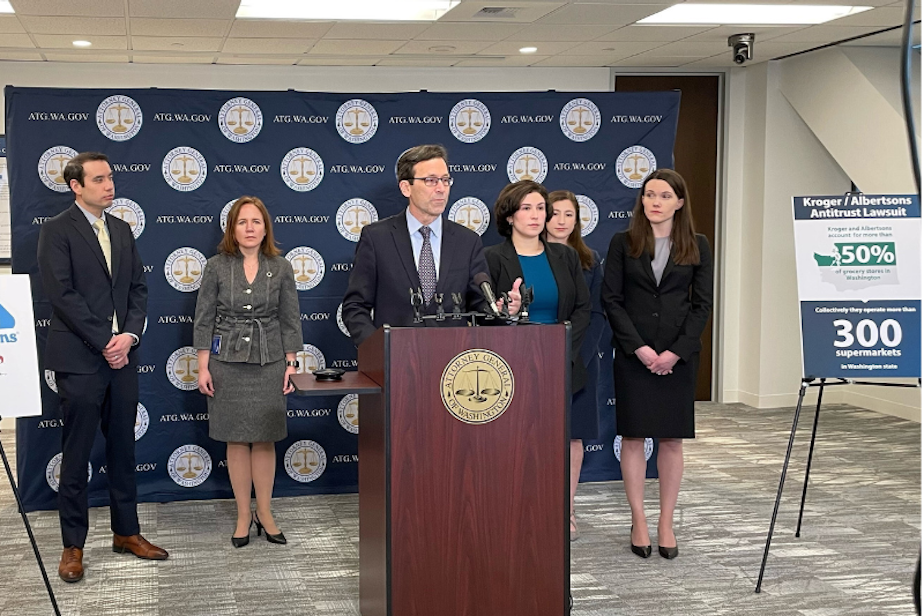Washington state sues to block Kroger-Albertsons merger

Grocery giants Kroger and Albertsons have been working for over a year to smooth the path to a $25 billion grocery merger.
But this week, Washington Attorney General Bob Ferguson lobbed a carton of sour milk at the deal.
Ferguson’s office filed a lawsuit on Monday to block the deal between Albertsons, the owners of Haggen and Safeway, and Kroger, owners of QFC and Fred Meyer.
Paul Roberts is a reporter at the Seattle Times who has been following this proposed merger and its implications for consumers, and joined Soundside to discuss the ramifications of the lawsuit.
He says that the Attorney General is making two basic points:
One is that the merger of Kroger and Albertsons will harm consumers by reducing competition. And that's especially important in a state like Washington, where those two companies are heavily concentrated and have a lot of over overlap in their markets. In places like Seattle, Kroger and Albertsons stores make up the vast majority of grocery options, often with competitors within a mile or so of each other.
"The question is: What happens to those two stores?" Roberts said. "Do they close? Are they sold off to someone else? Does that someone else have the capacity to run them so that they stay open? And what does this mean for consumers?"
The second argument is that the companies proposing the merger of Kroger and Albertsons say they can preserve that competition and protect consumers by selling off or divesting a large number of stores. And they'll sell those to a third party, in this case, C&S Wholesale Grocers, which would become the competitor that would preserve competition in the market.
"The Attorney General is basically saying, 'We don't have any confidence that that your solution is going to work," Roberts said. "Because among other things, C&S Wholesale doesn't have much retail experience. They don't have any experience in Washington state, they have a very small retail footprint — they're basically not going to be a viable competitor."
The lawsuit also points to the seeming paradox between Kroger and Albertsons saying they need to merge to become a larger company in order to compete with mega-retailers like Amazon or Wal-Mart, while simultaneously saying a newly created small competitor, like C&S Wholesale, would be able to survive in the same marketplace.
Listen to Soundside’s full conversation with Seattle Times reporter Paul Roberts by clicking the play icon at the top of this story.





